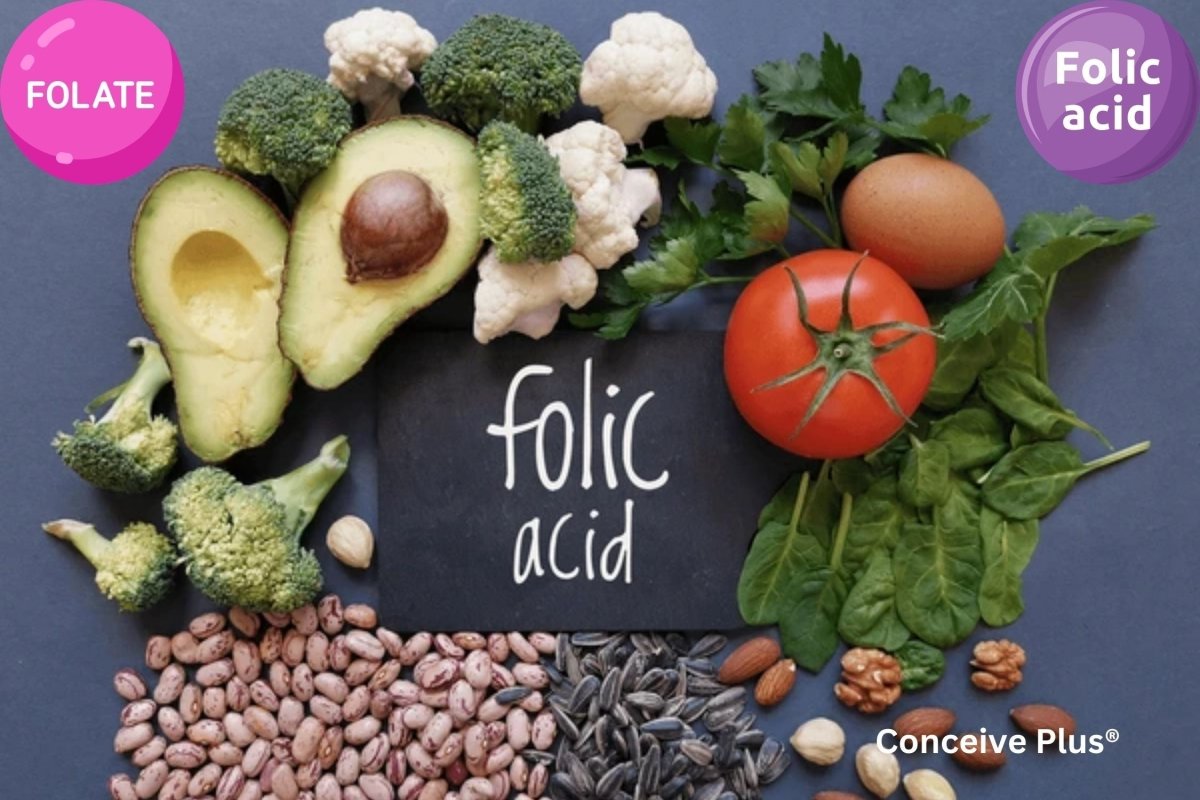Folate vs Folic Acid Prenatal: Making the Right Choice

Prenatal nutrition is a topic of growing interest among health professionals and parents-to-be. One of the most debated subjects is folate vs folic acid prenatal supplementation. Both folate and folic acid are linked to healthy fetal development, yet confusion persists regarding their similarities, differences, and individual benefits. In this article, we will thoroughly explore the nuances between these nutrients, including how they function in the body, their roles during pregnancy, and whether one is preferable to the other based on the latest scientific evidence.
Understanding Folate and Folic Acid
Folate and folic acid are both forms of vitamin B9, an essential nutrient required for DNA synthesis, cell division, and red blood cell production. Folate occurs naturally in foods like leafy greens, legumes, and citrus fruits, while folic acid is the synthetic form often found in supplements and fortified foods. Many people still ask, is folate the same as folic acid? Or folic acid the same as folate?. Although related, they are not identical. The body's ability to process and utilize these two forms can vary significantly, making this distinction especially important during pregnancy [1].
Why Folate and Folic Acid Are Critical for Pregnancy
Adequate vitamin B9 intake is vital for fetal neural tube formation, which occurs within the first few weeks of pregnancy—often before a woman even realizes she's pregnant. This is why prenatal vitamins routinely contain this nutrient. The topic of folate vs folic acid pregnancy is essential, as both have been associated with preventing neural tube defects (NTDs) like spina bifida and anencephaly. Low folate status has also been linked to preterm birth, low birth weight, and other complications. Therefore, supplementing with either folate or folic acid prior to and during early pregnancy is widely recommended [2].
Are Folate and Folic Acid the Same?
A common question among expectant mothers is is folate and folic acid the same or is folate folic acid the same. The answer is no. Folate refers to the natural form found in whole foods, whereas folic acid is synthetically produced and used in fortified products and supplements. Although folic acid is converted to the active form of folate in the body, not all individuals process it efficiently due to genetic variations. This inefficiency is why many are now exploring alternatives to folic acid and thus answering questions like are folate and folic acid the same? Or is folate and folic acid the same thing?
Methylfolate vs Folic Acid in Prenatal Care
The comparison of methylfolate vs folic acid has gained traction among healthcare providers. Methylfolate, also known as L-5-MTHF, is the active form of folate used directly by the body without conversion. In contrast, folic acid requires multiple enzymatic steps to become usable. For individuals with MTHFR gene mutations—affecting an estimated 30-60% of the population—this conversion may be impaired. This makes methylfolate vs folic acid pregnancy discussions highly relevant, as methylfolate may offer better absorption and bioavailability for certain women.
Explaining the Difference Between Folate and Folic Acid
Understanding the difference between folate and folic acid is crucial when choosing prenatal supplements. Folate is part of the natural food matrix and typically appears in the polyglutamate form, while folic acid is a monoglutamate synthetic form. This structural difference affects how they are absorbed and metabolized. Although both can ultimately help meet vitamin B9 needs, the metabolic steps required for folic acid conversion may be problematic for some women, especially during pregnancy when demands are higher.
How the Body Processes Folate and Folic Acid
Is folate the same thing as folic acid or is folic acid same as folate or is methylfolate the same as folic acid ? when it comes to metabolism? Not exactly. Natural folate from food is efficiently converted into the active form of folate (L-methylfolate) by the digestive system. Folic acid, however, must be first reduced to dihydrofolate and then to tetrahydrofolate before becoming biologically active. This conversion is less efficient in people with genetic polymorphisms, especially the common MTHFR mutation. This has prompted research on the effectiveness of methylfolate vs folate and the potential limitations of folic acid supplementation in prenatal care [3].
Methylfolate vs Folate: Which Is Better?
The methylfolate vs folate debate is not about one being inherently superior but about individual suitability. Methylfolate is the bioactive form, readily available for immediate use, making it advantageous for those with impaired folic acid metabolism. However, folate-rich diets naturally supply folate alongside other synergistic nutrients. For most people without metabolic issues, consuming folate from whole foods remains highly beneficial, but for those with elevated folate requirements or genetic challenges, methylfolate supplementation could offer superior support.
Choosing Prenatal Vitamins with Folate Instead of Folic Acid
More prenatal products are now offering prenatal vitamins with folate instead of folic acid, especially in professional or specialty formulations. These products cater to women who may have MTHFR mutations or who prefer a bioavailable nutrient profile. Choosing the appropriate supplement should be based on individual needs, health history, and the advice of a qualified healthcare provider. For those who tolerate folic acid well, traditional formulas remain an option, but awareness of bioavailability has made methylfolate-containing options more popular.
Folic vs Folate in Medical Guidelines
Medical institutions still recommend folic acid supplementation for the general population, but emerging research has influenced some to reconsider. This has led to ongoing discussions around folic vs folate in prenatal settings. Some countries now fortify foods with folic acid to prevent deficiencies on a population level, yet practitioners may recommend personalized supplementation based on genetic testing or individual risk factors. The phrase folate versus folic acid is now common among professionals weighing the benefits of each form [4].
Key Considerations When Choosing Prenatal Supplements
When selecting a prenatal supplement, factors like dosage, bioavailability, and individual tolerance matter. The difference between folic and folate may seem small, but for women with absorption concerns, it could influence pregnancy outcomes. Ask your healthcare provider about methyl folate vs folic acid if you have a family history of birth defects or unexplained pregnancy complications. Informed choices may help optimize maternal health and fetal development.
If you're still debating whether to opt for prenatal with folate not folic acid for optimal nutrient absorption during pregnancy, check out our article 'When Should You Choose Prenatal with Folate Not Folic Acid?' for expert insights.
Special Consideration: MTHFR and Folate Metabolism
A growing body of research focuses on l methylfolate vs folic acid and its implications for individuals with MTHFR gene variants. This enzyme is responsible for converting folic acid into its active form. Those with reduced MTHFR function may accumulate unmetabolized folic acid in the bloodstream, potentially disrupting normal methylation processes. For this reason, many functional medicine practitioners recommend methylfolate vs folic acid pregnancy strategies for clients with this mutation.
Folic Acid vs Prenatal Multivitamins with Folate
The folic acid vs prenatal debate is not about dismissing folic acid entirely but about matching supplementation to individual needs. While folic acid remains effective for many, those with impaired folic acid metabolism may prefer formulations with methylfolate or natural folate. Fortunately, several prenatal vitamins with folate instead of folic acid now exist, giving parents-to-be greater flexibility and potentially more effective nutrient absorption [5].
If you're curious about the comprehensive benefits of a multivitamin with folic acid for prenatal care, be sure to check out our article 'Multivitamin With Folic Acid: The Value of a Comprehensive Supplement' for more detailed insights.
The Role of Folate and Folic Acid in Methylation and DNA Synthesis
Beyond preventing neural tube defects, one of the most overlooked yet essential functions of vitamin B9—whether in the form of folate, folic acid, or methylfolate—is its involvement in methylation, a critical biochemical process. Methylation regulates gene expression, supports detoxification, and plays a role in synthesizing neurotransmitters like serotonin and dopamine. The difference between folate and folic acid is particularly meaningful in methylation because only methylated forms (like methylfolate) participate directly in these cycles without requiring further conversion.
This distinction raises the question many ask: is methylfolate the same as folic acid when it comes to supporting methylation? The answer is no. Methylfolate is already in the methylated form, whereas folic acid requires multiple enzymatic conversions. This becomes highly relevant in pregnancy, as efficient methylation helps with the development of the baby’s brain, spinal cord, and genetic stability. Parents with a history of miscarriages, unexplained infertility, or mood disorders may want to explore whether l methylfolate vs folic acid is better suited to their needs. Proper methylation not only influences the baby’s health but may also impact maternal mood and emotional balance during and after pregnancy.
Practical Tips for Expecting Mothers Choosing Between Folate and Folic Acid
With many prenatal options available, choosing between folic acid versus folate pregnancy supplements can seem overwhelming. First, it is advisable to check whether you are at risk for reduced folic acid metabolism. Those with a known MTHFR gene variant might benefit from using prenatal vitamins with folate instead of folic acid to ensure more efficient nutrient utilization. While is folate the same thing as folic acid might seem like a simple question, the decision carries practical implications, especially when it comes to absorption and effectiveness.
If unsure about your genetic status, you may still opt for supplements that contain methylfolate vs folic acid, as they are safe for the general population and suitable even for those without the gene mutation. Healthcare providers can assist in interpreting lab tests and recommend a prenatal vitamin tailored to your unique needs. Prioritizing a high-quality supplement free from unnecessary additives or allergens is equally important. Consider whole-food-based prenatal vitamins when possible, as these often include naturally occurring folate. Whichever you choose, consistency is key—taking the supplement regularly, ideally before conception and throughout pregnancy, supports the best possible outcome for both mother and child [6].
The Bottom Line
The choice between folate vs folic acid prenatal supplementation ultimately depends on personal health status, genetics, and practitioner guidance. Understanding the difference between folate and folic acid, and considering factors like bioavailability and genetic predispositions, helps expectant parents make informed choices. Whether exploring methylfolate vs folic acid, questioning is folate same as folic acid, or deciding between folic acid versus folate pregnancy options, staying informed leads to better prenatal care. Choosing the right form ensures optimal fetal development, reduces risks, and supports overall maternal health.
References:
- Greenberg JA, Bell SJ, Guan Y, Yu YH. Folic Acid supplementation and pregnancy: more than just neural tube defect prevention. Rev Obstet Gynecol. 2011 Summer;4(2):52-9. PMID: 22102928; PMCID: PMC3218540.
- Rieder MJ. Prevention of neural tube defects with periconceptional folic acid. Clin Perinatol. 1994 Sep;21(3):483-503. PMID: 7982331.
- Mosley BS, Cleves MA, Siega-Riz AM, Shaw GM, Canfield MA, Waller DK, Werler MM, Hobbs CA; National Birth Defects Prevention Study. Neural tube defects and maternal folate intake among pregnancies conceived after folic acid fortification in the United States. Am J Epidemiol. 2009 Jan 1;169(1):9-17. doi: 10.1093/aje/kwn331. Epub 2008 Oct 25. PMID: 18953063; PMCID: PMC3139973.
- Adams JB, Sorenson JC, Pollard EL, Kirby JK, Audhya T. Evidence-Based Recommendations for an Optimal Prenatal Supplement for Women in the U.S., Part Two: Minerals. Nutrients. 2021 May 28;13(6):1849. doi: 10.3390/nu13061849. PMID: 34071548; PMCID: PMC8229801.
- Giovannucci E, Stampfer MJ, Colditz GA, Hunter DJ, Fuchs C, Rosner BA, Speizer FE, Willett WC. Multivitamin use, folate, and colon cancer in women in the Nurses' Health Study. Ann Intern Med. 1998 Oct 1;129(7):517-24. doi: 10.7326/0003-4819-129-7-199810010-00002. PMID: 9758570.
- Forterre P, Filée J, Myllykallio H. Origin and Evolution of DNA and DNA Replication Machineries. In: Madame Curie Bioscience Database [Internet]. Austin (TX): Landes Bioscience; 2000-2013. Available from: https://www.ncbi.nlm.nih.gov/books/NBK6360/


























